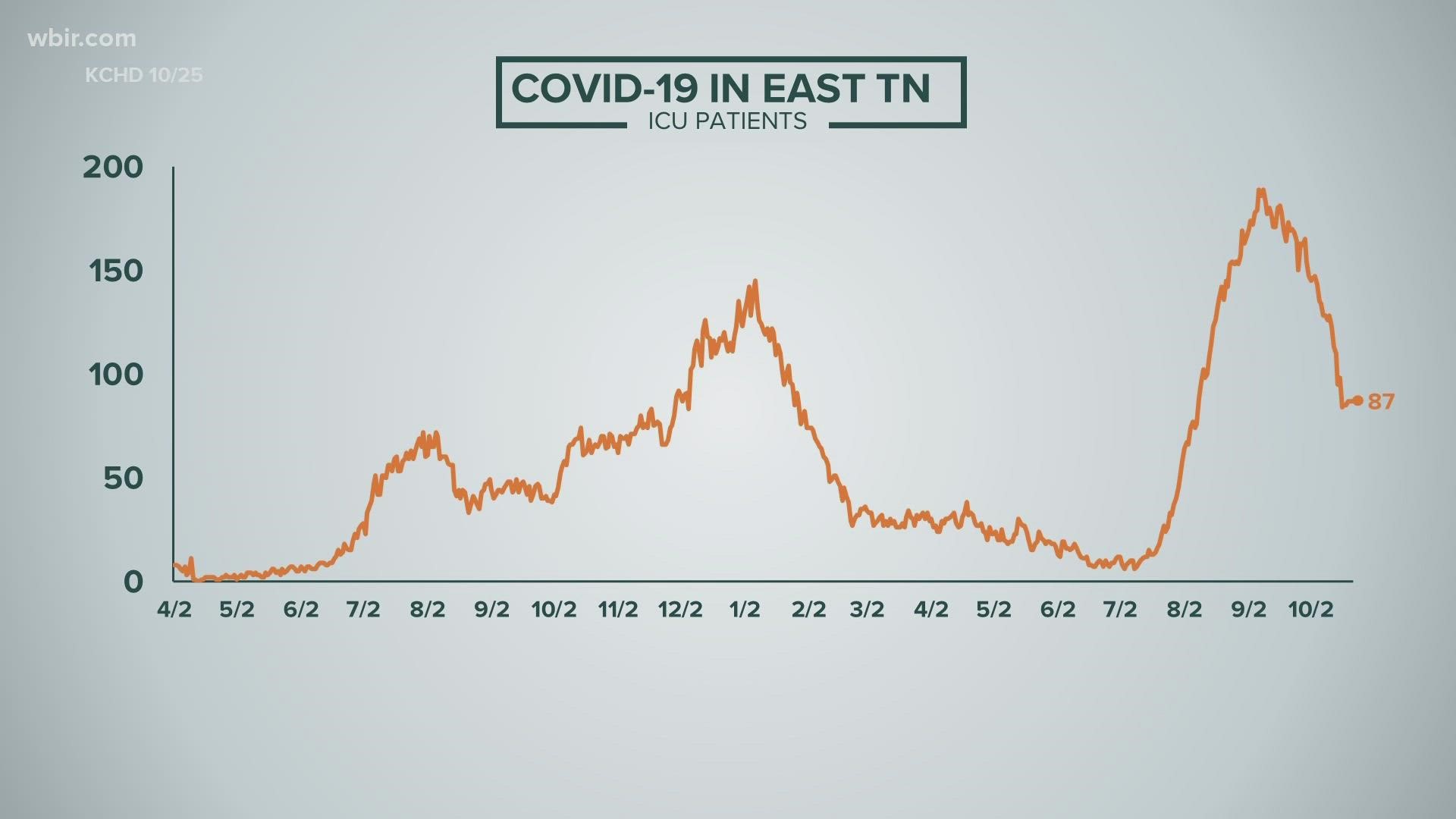KNOXVILLE, Tennessee — For the last 19 months, Dr. Sandy Leake has seen it all. The chief nursing officer at the University of Tennessee Medical Center said it's been unlike anything in her decades-long career.
"They've been exceptionally difficult," she said. "It has been heart wrenching at times. It's been physically and emotionally exhausting."
Still, her team is pushing through. Although the overall volume of COVID-19 patients has dropped, it's still high.
"Our teams have hung in there and done great work and continue to do great work," she said. "But, we've got a lot of healing that has to happen."
Dr. Leake said that healing is necessary after another devastating surge.
"I don't think any of us could have really ever imagined living through this experience," she said. "And then living through it once and then having yet another surge that was even worse than the first."
That's why the University of Tennessee Medical Center is focusing on mental health. It's a challenge many hospitals are facing across the country.
"If you're not really taking care of yourself and you're not intact and whole, it's very difficult to provide care to someone else," Dr. Leake said. "We've learned the importance of having support and the importance of making sure that people do have time to devote to self care."
Part of that is UTMC engaging its pastoral care service with staffers, as well as patients.
"[They] spend time on our COVID units, really talking with staff one-on-one and in groups," Dr. Leake said. "[They're] really doing some pretty creative things in a variety of ways to provide emotional support, psychosocial support."
In Tennessee, this second surge was tough. The patients were getting younger and were largely unvaccinated.
"Some of those infections and many of those deaths could have been preventable with vaccination," she said. "We're going to do everything we can possibly do to keep taking care of the patients that we are here to serve."
Dr. Leake said she hopes everyone will get their COVID-19 vaccines to prevent any future infections.
"COVID has not gone away," she said. "It is still here. It is still very, very serious, and people continue to die from it."

